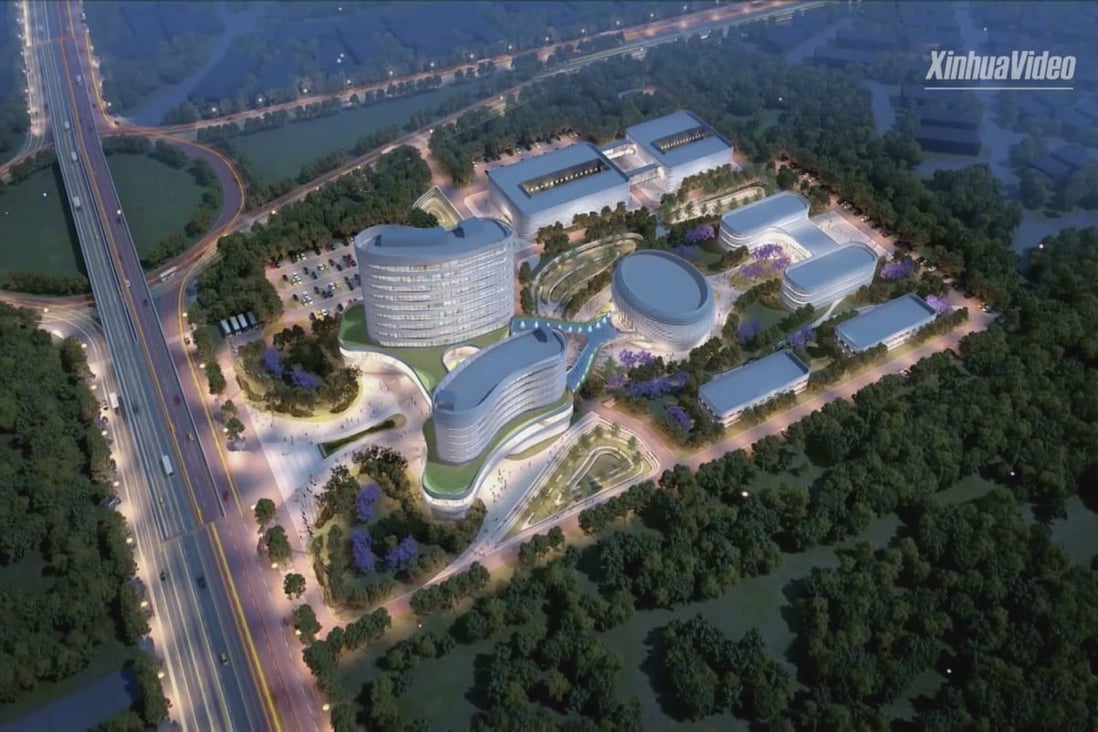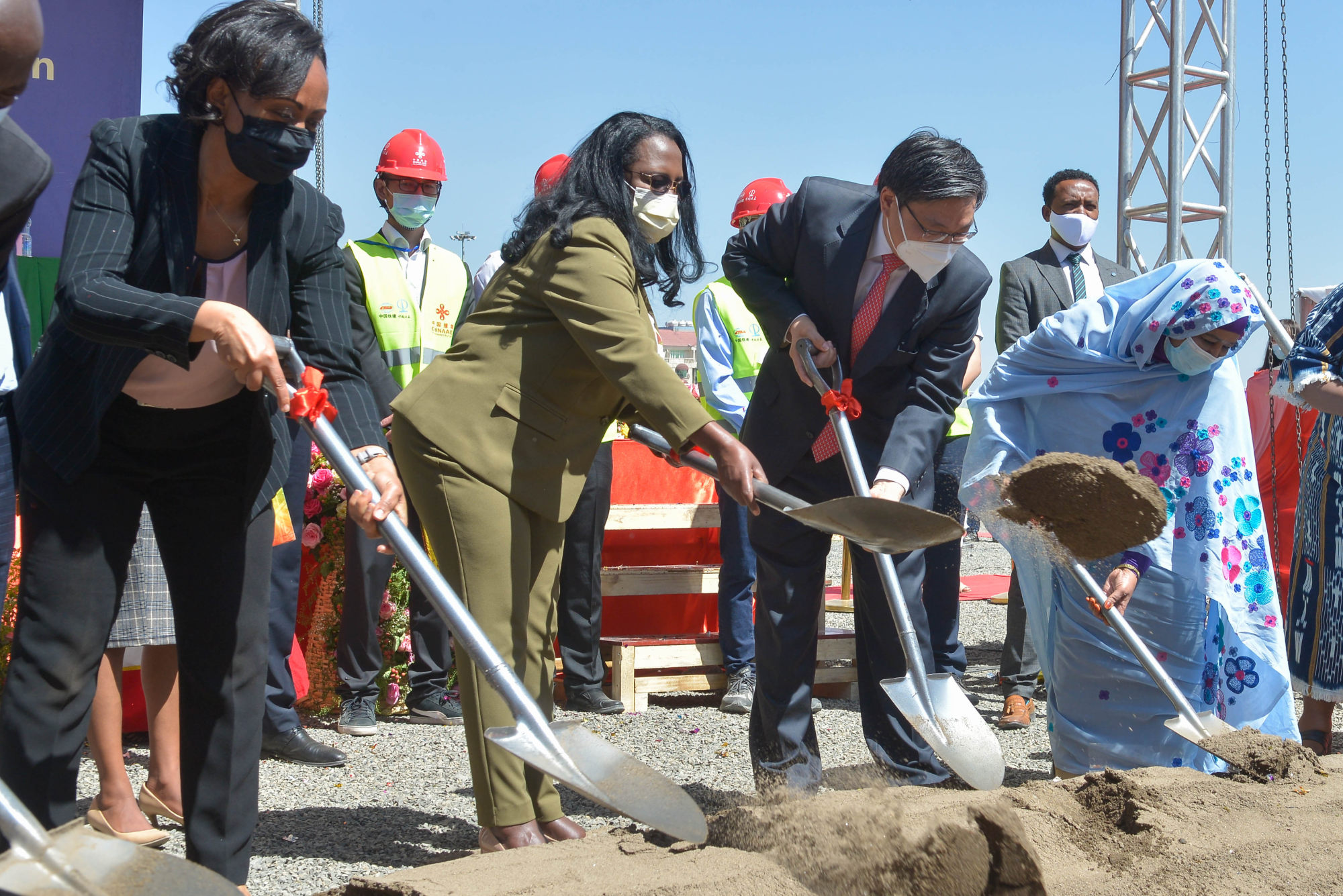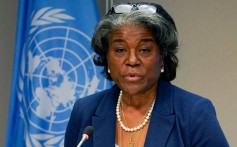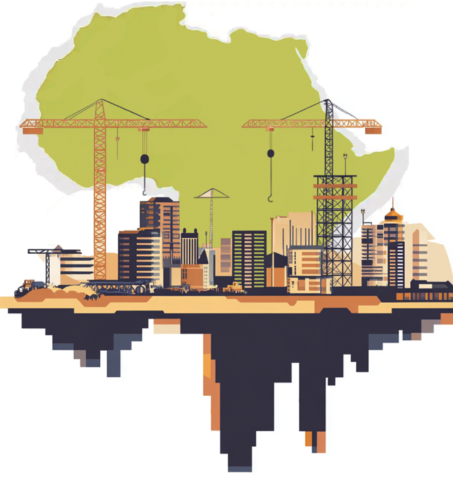AU CONTRAIRE
Explainer: Why Africans won't buy the "Debt Trap" narrative against China
By Wang Zongnan, Zhao Zhiqin (
Xinhua)
11:14, September 02, 2024BEIJING, Sept. 1 (Xinhua) -- "Debt-trap" is a term to describe an international financial relationship where a creditor country or institution extends debt to a borrowing nation with the intention of extracting economic or political concessions when the debtor country becomes unable to meet its repayment obligations.
Western media have pinned the "Debt Trap" narrative on China since an Indian think tank coined the term in 2017.
For instance, in an Associated Press article last year, reporter Bernard Condon alleged that China's "debt trap" has pushed some developing countries, for example Kenya and Zambia, to the brink of collapse. He claims the debt is largely owed to China, with high interest that is hard to repay and little willingness from China to forgive it.
However, what are the facts? Who is Africa's number one creditor? Who is the one using a "debt trap" to plunder the wealth of developing countries, and who is offering a real helping hand? The vast majority of developing countries, especially African countries, know the truth.
FALSE NARRATIVE
Many academics, professionals and think tanks have asserted that China's lending practices are not behind the debt troubles faced by borrowing nations, and that Chinese banks have been willing to restructure the terms of existing loans.
"Only about nine percent of Kenya's public debt can be attributed to China at the moment," Adhere Cavince, an international relations specialist from Kenya, told Xinhua.
The National Treasury of Kenya's debt bulletin, published in April 2024, reported that more than half (51.5 percent) of the country's external debt is owed to multilateral lenders like the World Bank and the International Monetary Fund (IMF). In contrast, China and other bilateral lenders account for only a fifth (21.5 percent) of Kenya's bilateral debt.
A briefing paper titled "Integrating China into Multilateral Debt Relief: Progress and Problems in the G20 DSSI," published by Johns Hopkins University, found that among the 46 countries participating in the Debt Service Suspension Initiative (DSSI) launched by the World Bank and the IMF, Chinese creditors accounted for 30 percent of all claims and contributed to 63 percent of debt service suspensions.
In contrast to the unfulfilled promises of debt relief by the Western world, "China has been far more generous in providing relief to allow for African countries to manage their post-COVID recovery," said Charles Onunaiju, director of the center for China studies in Nigeria.
"China's approach to debt relief has been more flexible, often involving the restructuring of loans to provide breathing space for debtor countries," said Humphrey Moshi, director of the center for Chinese studies at the University of Dar es Salaam in Tanzania. "In contrast, other creditors have been more rigid, prioritizing their financial returns over the economic recovery of African nations."
"The 'Debt Trap' narrative aims to discredit China's growing influence in Africa and to maintain Western dominance," Moshi said.
"It is neither in the interest of emerging economies nor that of China," Cavince said. "That is why, despite the hype, no African country is taking it seriously."
CHINA OFFERS HELPING HAND, NOT HANDOUTS
The COVID-19 pandemic has underscored the value of China's infrastructure projects, which have improved connectivity, lowered logistics costs, and provided essential healthcare facilities, said Moshi, describing China's investment in infrastructure as "groundwork for long-term sustainable development in Africa."
"Investments in education and vocational training have also empowered local populations by enhancing skills and employability, leading to sustainable economic opportunities," he added.
China, in fact, is helping developing countries to learn how to help themselves.
In Guinea-Bissau, "sometimes people walk several kilometers to find a water point," says Diamantino Lopes, a professor at Lusofona University of Guinea-Bissau. He highlighted China's support in financing boreholes and water distribution projects, which has significantly improved living conditions and public health.
China has increased its investment in Africa's energy sector tenfold in the last decade, said analyst Robert Bociaga in an article published by Nikkei Asia. What's more, these Chinese investments in energy may "potentially contribute to the energy independency of many African countries," said a study titled "The Impact of Chinese Investment on Energy Independence in Africa," published in Energy Policy this July.
"Many African countries are now looking to China to access solar panels to power villages across the continent," said Cavince, noting that Chinese products are "affordable, durable and accessible."
Cavince also emphasized China's willingness to invest in high-risk areas of Africa, a crucial factor in today's risk-prone world. China helps these regions weather the storms and build resilience in the post-pandemic era.
"In Tanzania, many infrastructure projects by other countries were halted, but Chinese-built ones continued," Moshi said, referring to the Magufuli Bridge, which has significantly reduced travel time across Lake Victoria and transformed daily life for thousands. It is "highly anticipated by residents," Moshi added.
The Magufuli Bridge is just another example of what some call a "Debt Trap," but Moshi argues otherwise. He emphasized that "China's investment is helping to build resilient communities that can withstand future economic and social challenges."
The true wealth generated by China's efforts is steadily having an impact on African countries, with more projects planned.
WEST FACES BACKLASH IN AFRICA
Moshi weighed in on the "Debt Trap" narrative, pointing out an often-overlooked African perspective: "People forget that African countries enter these agreements fully aware of the terms."
This is borne out by the facts.
"The United States and its Western allies are facing a backlash in African countries," Cavince said. "U.S. military bases are being uprooted in Africa, and unyielding American interference in the internal affairs of African countries is no longer tenable."
"The interest rates from Western lenders are higher... Countries have been stuck paying the interest, and the principal remains unpaid for a long time. What does that represent? It represents the rate of exploitation," said Chibeza Mfuni, deputy secretary general of the Zambia-China Friendship Association.
"Western aid often comes with many conditions, including austerity measures, privatization, and 'democracy promotion'," Cavince said. "This often causes civil strife."
In June, Kenya experienced mass protests and fatalities after proposed tax hikes tied to an IMF funding program. The now-defunct 2024 Finance Bill, backed by the IMF, was described by The Guardian as "the most extreme form of austerity in Kenya's history." During the protests, one placard read, "IMF, World Bank, Stop the Modern Day Slavery," as reported by Al Jazeera.
China, on the other hand, has been offering African countries funds with no political strings attached, Cavince said.
As a fellow Global South nation, China shares perspectives with African countries.
Cavince noted that China's aid responds to recipient countries' requests, unlike Western aid measures, "which often have already set areas where poor countries must request support."
Explainer: Why it is absurd to accuse China of practising "neocolonialism" in Africa
By Chen Wangqi (
Xinhua)
14:18, September 02, 2024BEIJING, Sept. 2 (Xinhua) -- As cooperation between China and African countries deepens and their ties grow closer, some Western nations have been hyping up the notion of "neocolonialism" regarding China's increasing presence on the continent.
By accusing China of fostering African dependence through massive investments and prioritizing Chinese interests over local needs, the West is seeking to sow discord in China-Africa relations and undermine their cooperation, all in an effort to protect the vested interests of a few Western countries in Africa, experts have said.
This raises important questions: Is China's cooperation with Africa truly neocolonialism? How does the China-Africa relationship differ from the West's ties with Africa? And why is the West so committed to advancing the narrative of Chinese neocolonialism?
EMPOWERMENT INSTEAD OF EXPLOITATION
Improved transportation networks, better access to healthcare, increased employment opportunities ... the benefits of Chinese investments are tangible to many Africans in their daily lives, said Humphrey Moshi, director of the Center for Chinese Studies at the University of Dar es Salaam in Tanzania.
"The infrastructure projects funded by Chinese loans and investments have been transformative," Moshi told Xinhua, noting that China has expanded access to opportunities and resources across Africa.
He pointed out that China-built roads, railways, and ports have slashed transportation costs and opened up isolated regions to national and international markets, helping Africa to trade itself out of poverty while facilitating industrialization.
These infrastructure projects have also created thousands of jobs for local communities, not only during construction but also in the long-term operation and maintenance of these facilities, Moshi said.
Charles Onunaiju, director of the Center for China Studies in Nigeria, said that the China Civil Engineering Construction Corporation alone has trained hundreds of young local people in critical sectors such as railway engineering and other technical fields.
Africans are working as senior- and mid-level employees, he added, noting that these are very crucial additions in building capacity in Africa, a critical challenge for the continent.
Meanwhile, Chinese investments in constructing hospitals and schools, coupled with the provision of medical equipment and educational materials, have improved access to essential services and overall well-being, laying "the groundwork for sustainable economic and social progress," Moshi said.
However, at the same time, frequent U.S. sanctions on African countries cost poor workers in developing countries, usually women, their jobs when factories are shut down because they can no longer access the U.S. market, the Center for Strategic and International Studies (CSIS) noted.
"Are those workers exploited? Unquestionably yes," the CSIS said.
Unlike the West, both China and Africa were victims of Western colonization and can thus easily understand each other's plight, said Adhere Cavince, a Kenya-based international relations scholar.
Onunaiju said China seeks to be an active partner amid global challenges due to its broad outlook on shared global prosperity. "The condition for neo-colonialism does not exist in China's political system."
CUSTOMIZATION INSTEAD OF CONTROL
"Western countries often prioritize the promotion of their values and systems" while China's aid is often tailored to the needs of the recipient countries, Moshi told Xinhua.
China's aid targets areas where Africa lags behind the rest of the world, including infrastructure development, trade facilitation, and investments aimed at long-term economic growth, he said.
Similarly, Cavince noted that China mainly helps to construct infrastructure and alleviate poverty through agriculture projects and energy grids.
As Africa's largest partner in the green energy transition, China provides African consumers with "affordable, durable and accessible" green products, without imposing conditions, he said.
In contrast, Western aid is often tied to political and economic conditions such as austerity measures, privatization, and "democracy promotion," which often cause civil strife, Cavince further said.
The CSIS pointed out that "in other words, the West is still trying to civilize the former colonies by getting them to do things we (Western countries) think are good for them."
Uganda's President Yoweri Museveni also slammed in August 2023 that many of the loans and aid packages from Western countries "are either of no value addition to the country or are even anti-growth, all together" in a speech following the World Bank's decision to halt financing to Uganda.
Loans and aid packages from the West had brought a lot of distortion and stunted Uganda's growth as well as the entire continent, said Museveni, blaming Africa's "miserable" economic performance on the Western world, which looked at Africa only as producers of raw materials.
"The history of Western aid in Africa has played absolutely no role in lifting Africa (out of poverty)," said Onunaiju. "That is why ... we do not want Western aid anymore."
"We want more investment. We want more trade," he said.
SHIFTING PUBLIC OPINION
China has remained Africa's largest trading partner for a 15th consecutive year, with a trade volume of 282.1 billion U.S. dollars in 2023, a joint report by the Office of the Leading Group for Promoting the Belt and Road Initiative, the National Development and Reform Commission (NDRC) and other authorities revealed on Thursday.
As of the end of 2023, China's direct investment stock in Africa had exceeded 40 billion dollars, said an official with the NDRC, adding that China-Africa trade and investment is expected to maintain steady growth this year, demonstrating the strong vitality and resilience of China-Africa economic and trade cooperation.
China's growing engagement with Africa unsettles some nations in the West. They hence use narratives like "neocolonialism" and "debt trap" as geopolitical tools to smear China and weaken the effectiveness of its development partnerships with developing countries, Cavince said, adding that such hype is not in the interest of emerging economies.
China's contributions to infrastructure development, healthcare, and education in African countries are visible and tangible in the daily lives of local people. These contributions significantly boost the growing approval of China across the continent, noted Moshi.
In addition, China's approach to aid and investment, which emphasizes respect for the sovereignty of African nations, is appreciated by many Africans, he said.
On the contrary, the U.S. promotion of its ideology and strategic interests, and the lack of consistent engagement with or tangible benefits for Africa all led to the decline in African approval of the United States, the expert concluded.
(Web editor: Zhang Kaiwei, Zhong Wenxing)








